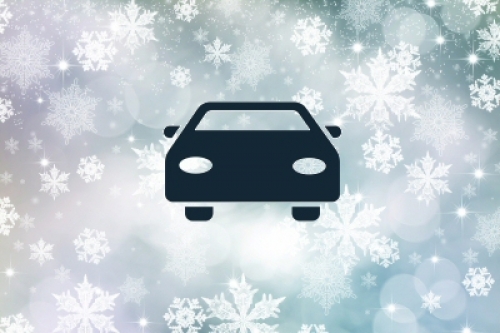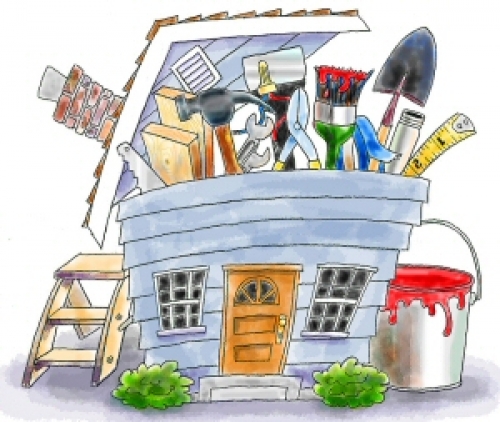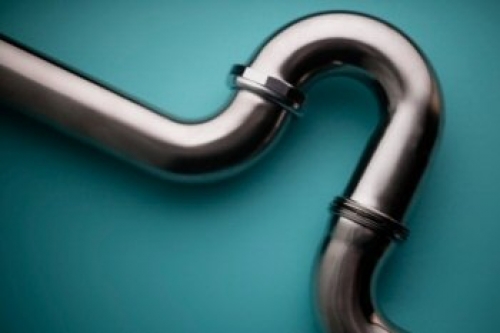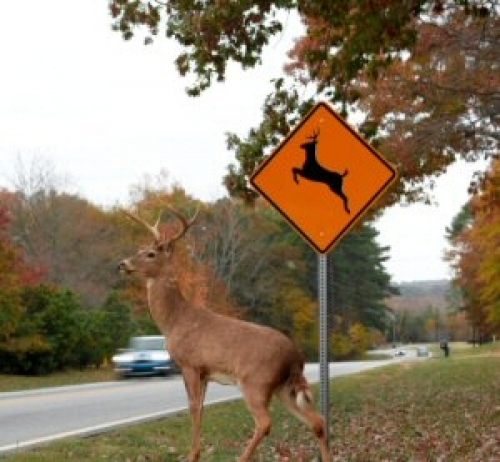 William M. Sparks 1945 - 2023
William M. Sparks 1945 - 2023
My father, William (Bill) Sparks, passed away sadly but comfortably Sunday morning, surrounded by his family. He was a kind and loving man with a heart of gold. There are so many who loved him and will feel this loss – in the business world and far beyond. He would say thank you to all of his small-business customer for their support, and he would wish everyone peace and happiness. I have run the William M. Sparks Insurance Agency for many years now, and I will continue to run it just as my father did and as he would want me to do. On behalf of my family, I thank you all for your kind words, well wishes and support at this time. --- Danielle Sparks
All the checklists and plans are underway, and dreams of the wedding march and the honeymoon dance in your head. But does that checklist include the possible changes to your insurance portfolio as you join two lives and become a couple?
Like most newlyweds, you look forward to a nice home, happy, healthy children and a comfortable retirement. As a married couple, you will share a life, but you will also share financial obligations.
If one of you were to die tomorrow, could the surviving spouse afford to pay for final expenses, cover loan and credit card balances, and have the support needed to adjust to such a sudden and devastating life change?
Life insurance could provide that much needed safety net. So be sure that your wedding checklist includes a meeting with your insurance agent and then enjoy the peace of mind that comes with knowing you are covered.
Already have life insurance? Your agent can help you review your policy to be sure it still meets the expanded needs that marriage can bring.
With recent temperatures into the single digits and snow bringing our daily routine to a standstill here in Maryland, Washington DC and Virginia, it’s not only unwise but unsafe to be unprepared for weather problems this winter. Be a smart driver -- brush up on these common sense rules for safe winter driving.
- Even if you didn't prepare for winter before this wet, cold or icy weather by performing a complete vehicle check-up, do it now. Your auto tech will tell you that winter conditions present the greatest challenge to your vehicle’s operating efficiency.
- Move your vehicle into the open to let it warm up so that you avoid exhaust build-up in your garage.
- Check your tires frequently for proper inflation. If your vehicle owner’s manual does not specify, then ask your automotive technician about the proper inflation level.
- Make it a practice to keep your fuel tank at least half-full – both to prevent gas-line freeze and to ensure that you won’t likely run out of fuel in an emergency.
- If possible, don’t drive in bad weather; and if you must drive, try to be well rested and wait until snow plows and sand trucks have cleared the roads.
- When driving on wet, snowy or icy roads, avoid using cruise control or overdrive. Both detract from your full control of the vehicle in possible slippery conditions.
- Use your seat belt and make sure that your seat and mirrors are properly adjusted for best visibility. Wear sunglasses to reduce glare.
- Don’t use your parking brake in cold or inclement weather, if at all possible.
- If you experience skidding on slippery roads, always take your foot off the gas pedal and steer in the direction you want to go to recover from the skid.
One more essential: Keep a Winter Driving Kit in your vehicle and stock it with a bag of sand, salt or kitty litter, ice scraper, paper towels, shovel, snow brush, warning flares, window-washing fluid, a flash light, booster cables, a blanket, gloves and a cellular phone. You’ll have the peace of mind that comes from knowing you’re prepared for an emergency.
The key to safe winter driving is to plan ahead, know your vehicle and adapt to the weather and road conditions.
Make Sure Your Home is Safe Against the Invisible Killer
Carbon monoxide kills hundreds and sickens thousands of Americans every year. The poisonous gas cannot be smelled, which is why many states require carbon monoxide detectors in homes and apartment buildings. A little planning combined with a small investment can protect you and your family from this odorless and invisible killer.
Carbon monoxide fumes can come from many sources, including stoves, faulty furnaces or car exhaust. That’s why you should have all fuel burning appliances installed by professionals - and never use a stove or oven to heat a home. Technically, carbon monoxide is produced when fuels do not burn completely. Whether you use natural gas, liquefied petroleum (LP gas), oil, kerosene or wood as fuel in your home, you are producing carbon monoxide. To detect this poisonous gas leaks consumers should equip their homes with carbon monoxide detectors.
“It is very important to have a carbon monoxide detector in your house. Put one on every floor of the house, especially bedrooms and upstairs,” says Allan Robinson, assistant vice president of claims for Encompass Insurance. “If the detector’s alarm goes off, you should immediately go outside for some fresh air, then call 911 for emergency services.”
Encompass Insurance also recommends that you test your carbon monoxide detectors twice a year to make sure the circuitry is working properly.
The Consumer Product Safety Commission offers more information on the dangers of carbon monoxide and the proper use of carbon monoxide detectors on its web site.
Encompass Insurance offers other tips for staying safe:
- Never leave a car running in an attached garage, even with the garage door open.
- Never use gas appliances such as ranges, ovens, or clothes dryers for heating your home.
- Carbon monoxide detectors are made for boats and recreational vehicles as well, so keep this in mind as you prepare for summer.
Every winter season, the pipes in your home are at risk of damage from freezing conditions. Low temperatures can cause your pipes to freeze, and in some cases burst. Encompass Insurance offers the following tips to safeguard your home before, during and after a pipe freezes.
Prevent Your Pipes From Freezing
- Disconnect all gardening hoses and install covers on all outside faucets.
- Keep your house temperature at 68 degrees or higher, even if you're leaving the house for an extended period of time.
- Open cabinet doors below sinks to allow heat from the home to circulate.
- Identify the location of the main water valve and the valve on your water heater. (Learning the location of these valves may come in handy during an emergency.)
- Wrap pipes nearest exterior walls and in crawl spaces with pipe insulation or with heating tape. This can prevent freezing, especially for interior pipes that run along outside walls.
- Close all windows near water pipes; cover or close open-air vents. Freezing temperatures combined with wind drafts can cause pipes to freeze more frequently.
- Heat your basement and consider weather sealing your windows.
- Insulate outside walls and unheated areas of your home.
- If you plan to be away from home for an extended period of time, shut off water supply valves to your washing machine.
Monitor Freezing Pipe Conditions
- Allow a faucet to drip slightly (lukewarm water) in order to minimize freezing.
- The first sign of freezing is reduced water flow from a faucet.
- Check your faucets for water flow and pressure before you go to sleep and again when you wake up.
- Check pipes around your water meter, in unheated areas, near exterior walls and in crawl spaces.
- These tend to be vulnerable to freezing conditions.
- Identify cold air drafts coming in from a flue or chimney chase and caulk gaps that are near pipes.
If a Pipe Freezes
- If a faucet or pipe inside your house freezes, you can thaw it using a good hair dryer. (For safety purposes, avoid operating a hair dryer around standing water.)
- To thaw a frozen pipe, heat water on the stove, soak towels in the hot water and wrap them around cold sections of the pipes.
- When thawing a pipe, start thawing it nearest to the faucet. Make sure the faucet is turned on so that melted water can drip out.
If a Pipe Bursts
- Shut off water at the main valve.
- If the break is in a hot water pipe, the valve on top of the water heater should be closed.
- Call a plumber. Keep an emergency number nearby for quick access.
No matter where you drive – from rural roads to suburban streets and even highways around our cities – the threat of a collision with a deer is real.
Deer collision accidents are on the rise, partially because the deer are being displaced from their natural habitat by urban sprawl but also because the deer population is growing.
In fact, the Insurance Information Institute reports that over 1 .6 million deer-vehicle collisions occur each year and these accidents cause vehicle damage, injuries and even fatalities at a cost in the neighborhood of $4.6 billion.
A Few Facts…
- Deer collisions are most likely to occur during deer breeding season – from October through early January.
- Prime times to find deer near the roadside are around dawn and from dusk to late evening.
- Deer are pack animals. So if you see one, be assured that others are usually close by.
Deer Season Driving Tips
- Always wear your seatbelt – Sixty percent of fatal animal crashes occurred when the driver was not wearing a seatbelt.
- Know the likely deer-crossing zones – Whether or not a road is marked with a Deer Crossing Sign, be especially alert for deer when driving on roads or highways on the outskirts of town and in rural areas – especially where roads divide farm land from wooded land. Use your high beams – When driving at night, especially during peak hazard times, use your high-beam headlights when there is no on-coming traffic. This won’t necessarily deter the deer from entering the roadway, but it will increase visibility so that you can more easily spot the deer sooner.
- Know when deer are on the move – Be especially careful between 5AM and 8AM and between 5PM and midnight.
- Don’t rely on devices – Items like deer whistles, deer fences and reflectors have not been proven effective at deterring deer crossing roadways.
- Brake firmly if you notice a deer near the road – Slow down and stop if necessary. Be careful not to swerve out of your lane either into on-coming traffic or off the shoulder and into a ditch.
- Keep your distance – If you do strike a deer, don’t approach it. An injured deer is frightened and can injure you as well as further injuring itself. If the deer is blocking the roadway, it poses a threat to other drivers; so call the authorities immediately.
- Contact your insurance agent – If you strike a deer and have damage to your vehicle or damage to some else’s property, notify your insurance representative as soon as possible and provide the necessary details.










